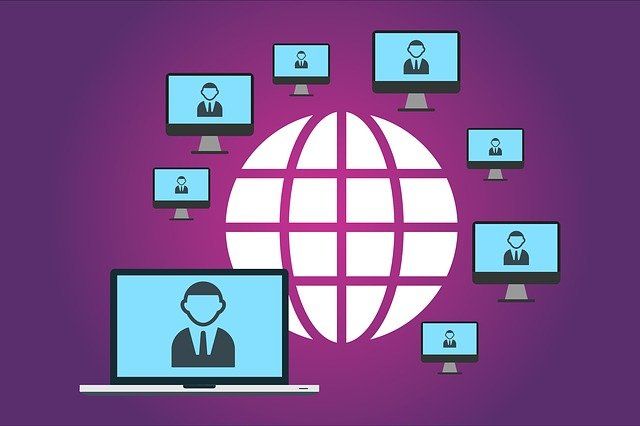Key Cyber Security Outsourcing Trends for 2021

The pandemic is still on and its impact on business will persist for a long time. It exerted a big influence on the adoption of remote working and outsourcing of IT Services to ensure smooth business operation. The COVID-induced restrictions affected businesses in various ways and also inspired rapid changes in technology usage. Some of the changes include new technology adoption which was followed by a sharp increase in cyberattacks. Hence, business managers are re-evaluating their IT plan priorities especially in the area of cyber security outsourcing as an effective solution against cyber attacks. These trends were addressed in an opinion survey of 500 IT managers by syntax.
Here, will discuss the key findings of the IT survey and what it means for your business security.
1. Covid-19 Accelerated Digital Technology Adoption
Many businesses implemented unplanned digital transformation in order to cope with the pandemic. About 89% of businesses saw an increase in new digital technology adoption following the coronavirus outbreak. This technology transformation overstretched organizations’ IT teams responsible for setting up collaborative networks for remote working and managing its security.
The rapid change in the environment emphasizes the importance of having a solid network and security policy in place.
2. Cyber security Outsourcing is Gaining Popularity
Cloud deployment, monitoring, and security cannot be adequately tackled by in-house teams for reasons of time, skills, or expertise.
Hence, IT managers are asking for more in the area of cloud management, security, and transitioning of work systems.
About 23% of respondents now favor outsourcing cyber security to an MSP to replace or augment their in-house teams.
3. Budget Cuts for IT department
Despite an increase in cyber attacks following the covid-19 outbreak, 79% of managers reduced their IT team’s capacity to cope with dwindling budgets. An inadequately manned security team may expose a business to attacks.
4. Increased Need for Strategic Advice
IT leaders in companies with internal security teams are looking forward to outsourcing their cybersecurity work to MSPs. Their main reason for this is to get more strategic counsels about IT security.
Currently, 91% of survey respondents manage internal security operations centers(SOCs) for their organization. However, this arrangement is inadequate for addressing the security challenges posed by cybercriminals. Also, IT managers are not getting what they need for adequate organizational defense. Almost half of the survey respondents with in-house security groups want to work with MSPs to get strategic advice on how to defend against cyberattacks.
5. More Interest in Cloud Infrastructure
Whether it is setting up multi-cloud or hybrid cloud systems, IT managers are very enthusiastic about increasing the cloud integration of their organization to expand storage and promote business flexibility.
6. Cloud Security is a Major Concern for Deployment
When asked, IT industry leaders choose security as the most challenging aspect of cloud migration.
They are concerned about maintaining business continuity and security. However, these concerns do not translate into a proportional investment for cybersecurity. For instance, more storage is favored by 62% of respondents, while hybrid cloud and maintenance got a nod from close to half of managers.
About 56% of IT executives are planning to spend 40% of the organization’s budget on cyber security. These include services such as threat intelligence, malicious bots detection, and blocking vulnerability in software and network. Improving cybersecurity is not among the top 3 spending priority projects for 2021. This may open up businesses to attacks from bad actors.
7. Data Analytics Leads the Pack
Data analytics took the front among survey participants. About 55% of survey respondents are planning to invest more in data analytics and business intelligence in 2021 compared to 42% in 2020. This is expected to help businesses gain a competitive advantage by making data-driven business decisions.
8. Opposition to Cloud Adoption among Top Management
The rapid migration of business systems to the cloud to facilitate remote working provides an excellent opportunity for IT managers to demonstrate the importance of cloud adoption. Despite the success recorded in moving office settings to the cloud, some top business managers are still reluctant to embrace cloud technology as stated in the Syntax report.
This survey of IT managers is important because it reveals the future action organizations and industry trends regarding how businesses will protect themselves against cyberattacks with the aid of Managed service providers.
The pandemic has permanently changed the way many organizations operate. It is up to you as a business owner to ensure that your organization is properly secured against cyber attacks. This can be achieved by working with expert outsourced cybersecurity support to properly migrate your business to the cloud and keep it safe.
*****
Going forward, businesses will increasingly rely on MSP and third-party security solutions to keep their data and network safe from attacks.
The post Key Cyber Security Outsourcing Trends for 2021 appeared first on SDTEK | San Diego, CA.


